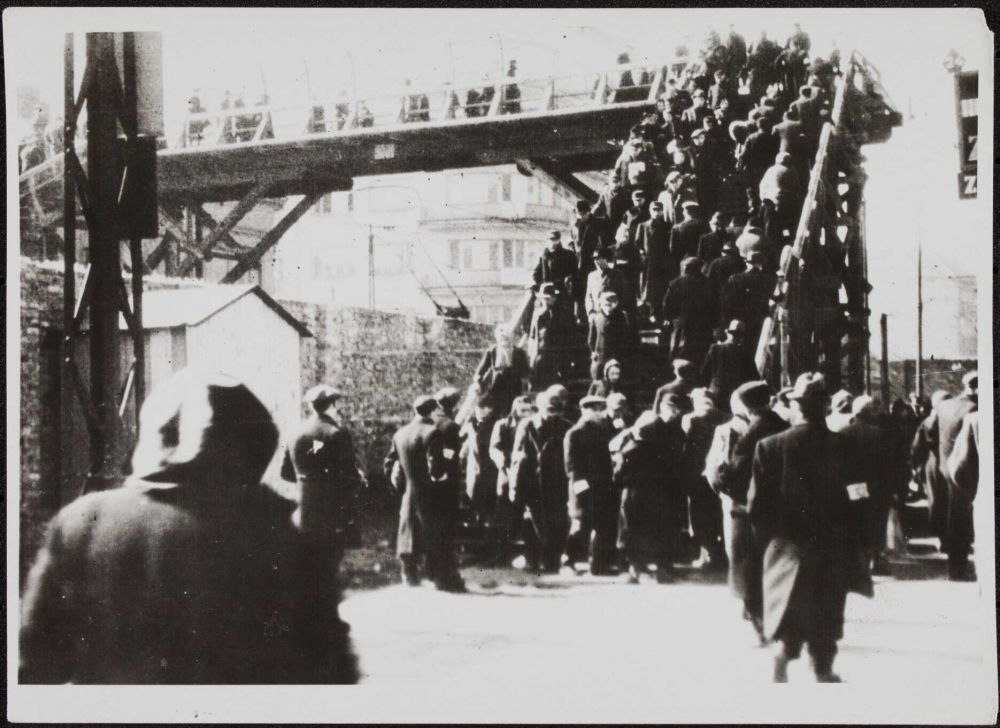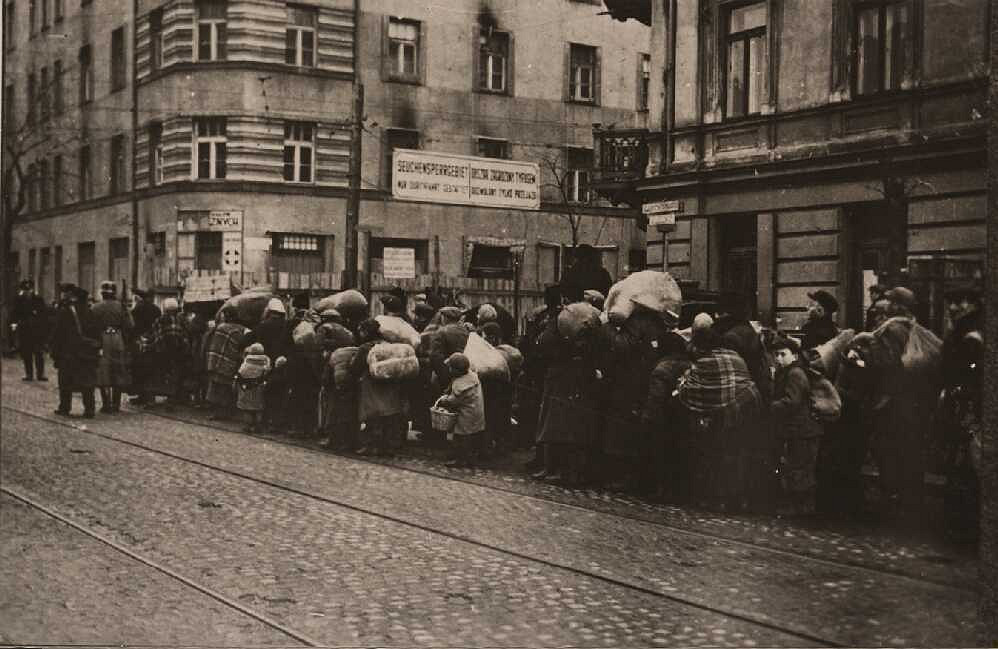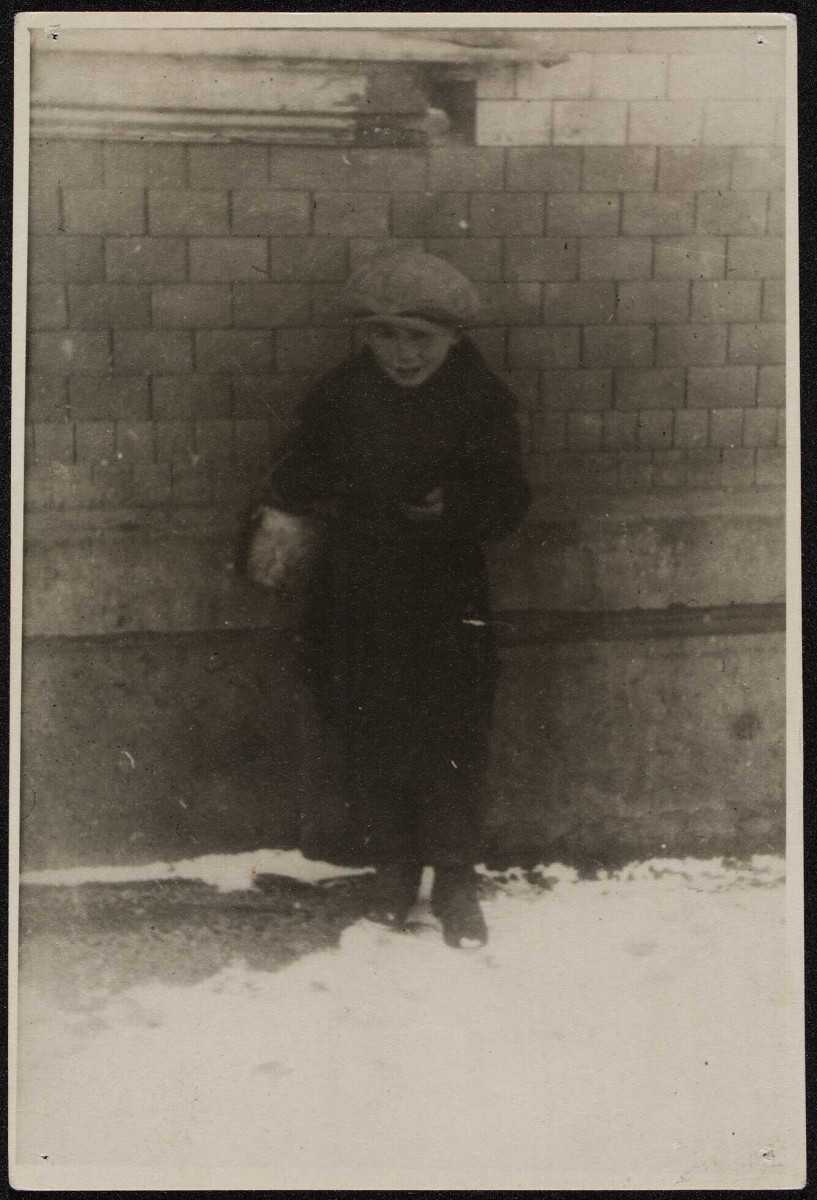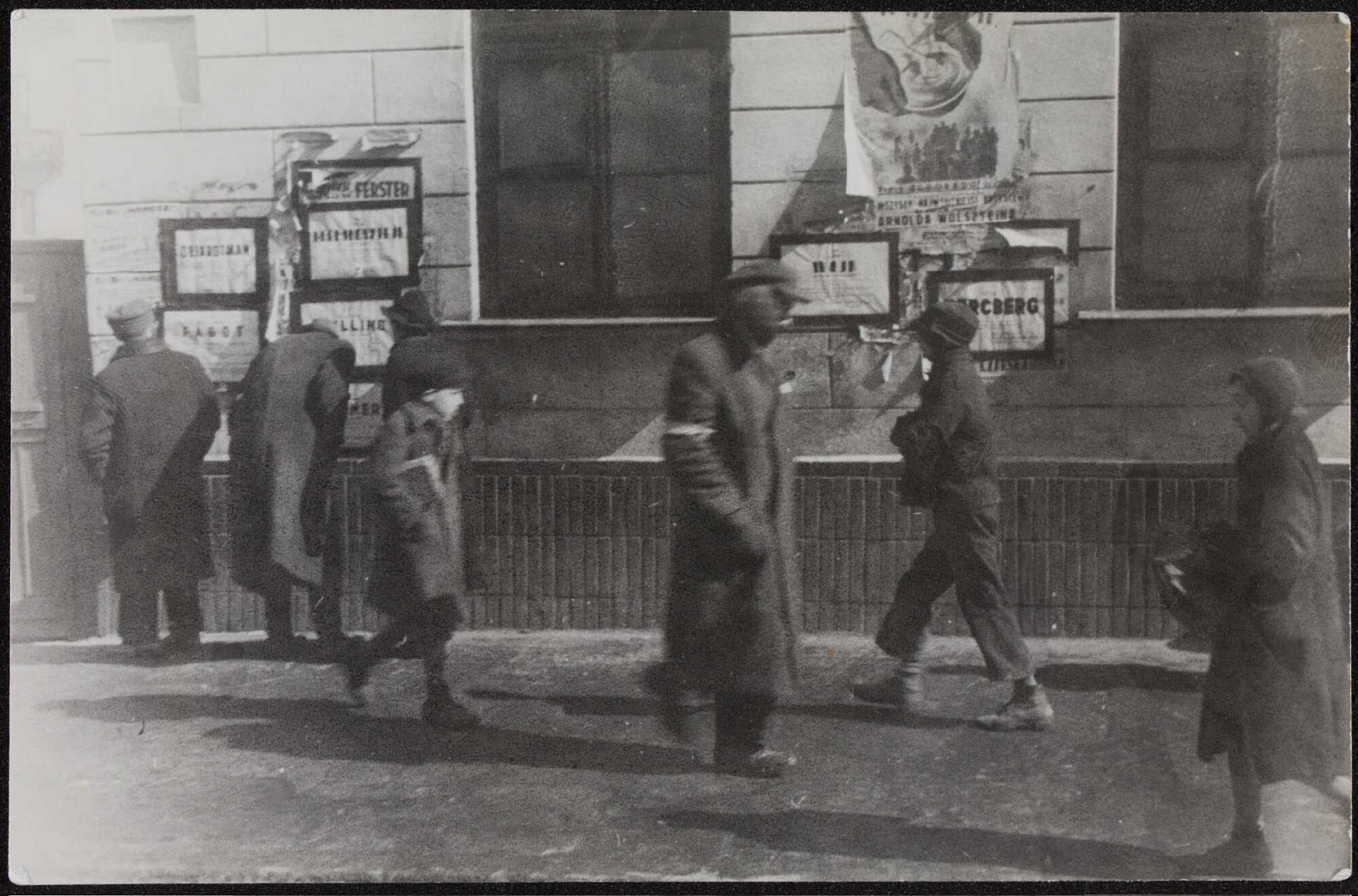- News
- Events
- Oneg Shabbat
- Collections
- Research
- Exhibitions
- Education
- Publishing Department
- Genealogy
- About the Institute
- Bookstore


The bridge over Chłodna Street /
In the course of work on the complete edition of the Ringelblum Archive, editors have made a number of important discoveries regarding the history of the Warsaw Ghetto. The Archive contains vast resources on economy, demographic and many issues of the daily life in the ghetto (including the life stories of people who lived there) which haven’t been used before. Synthesised entries are supposed to be a synthesis of the research made to date and to fill in the gaps in the state of research on the Warsaw Ghetto. They will also include information sourced from other collections of the JHI (Jewish diaries from the occupation period, accounts from Jewish survivors – materials, which were difficult access due, among others, to language barriers) and from published sources and accounts related to the Warsaw Ghetto and the Holocaust.
The project will be carried out by a specialized, interdisciplinary team of scholars. Outstanding researchers from Poland have been invited to the discussion on the initial list of entries. The criteria on entries will be based not on the current state of research, but rather on the aim to present as vast array of issues related to the Warsaw Ghetto as possible. The Encyclopedia is intented to present these issues in the possibly most complete way.

The expected number of entries spans about 2,000 positions divided into following subject areas:
– thematic entries – selected and edited basing on (among others) materials sourced from an unfinished research project conducted by the Oneg Shabbat group – „Two and a half years of war”, intended to be an extensive monograph of social life in the Warsaw Ghetto;
– personal entries – mostly related to the murdered Jews of Warsaw, whose names were recorded in testimonies and documents;
– entries related to organizations – political, cultural, youth organizations active in the Warsaw Ghetto;
– entries related to history – the most important events in the history of the Warsaw Ghetto;
– entries related to typical elements of the daily life in the ghetto;
– geographical entries;
– other.
The Encyclopedia will be published on the DELET webportal. The illustration material will contain unique, rarely published photographs of the Warsaw Ghetto from the collection of the JHI. Entries will be also linked to diagrams, charts, links to documents from the JHI resources and tags to entries on related subjects.

The Encyclopedia will be an interactive network of links between entries (allowing for following connections between people, organizations, events or places), scans of original documents, and photographs illustrating particular entries. Using the Encyclopedia will be simple even for users who don’t have an extensive knowledge on the subject, and due to its virtual form, it will be regularly updated and modified according to the state of research.
The works on the Encyclopedia will be accompanied by seminars and conferences, providing an ooportunity to discuss and reflect on important issues in the area of the historiography of the Holocaust. They will be attended by experts from various institutions, as well as lecturers, students and young researchers who don’t belong to the project team but are interested in the subject. The online version of Encyclopedia, aside from its educational function, will also popularize knowledge. Its goal is to transcend the circle of settled researchers and address other groups interested in the subject (teachers, lecturers, university students, high school students).

One of the most important goals of the project is to inspire future research and to encourage researchers to explore deeper the issues mentioned in the Encyclopedia entries.Once all the entries have been edited, the research team will select the essential ones, which will be published in print – as a summary of the Ringelblum Archive publishing series.
Professor Andrzej Żbikowski is the head of the project and Maria Ferenc-Piotrowska is a coordinator of the project. The project is expected to run until 2023.
The project is financed by the Ministry of Science and Higher Education as part of the National Humanities Development Program.